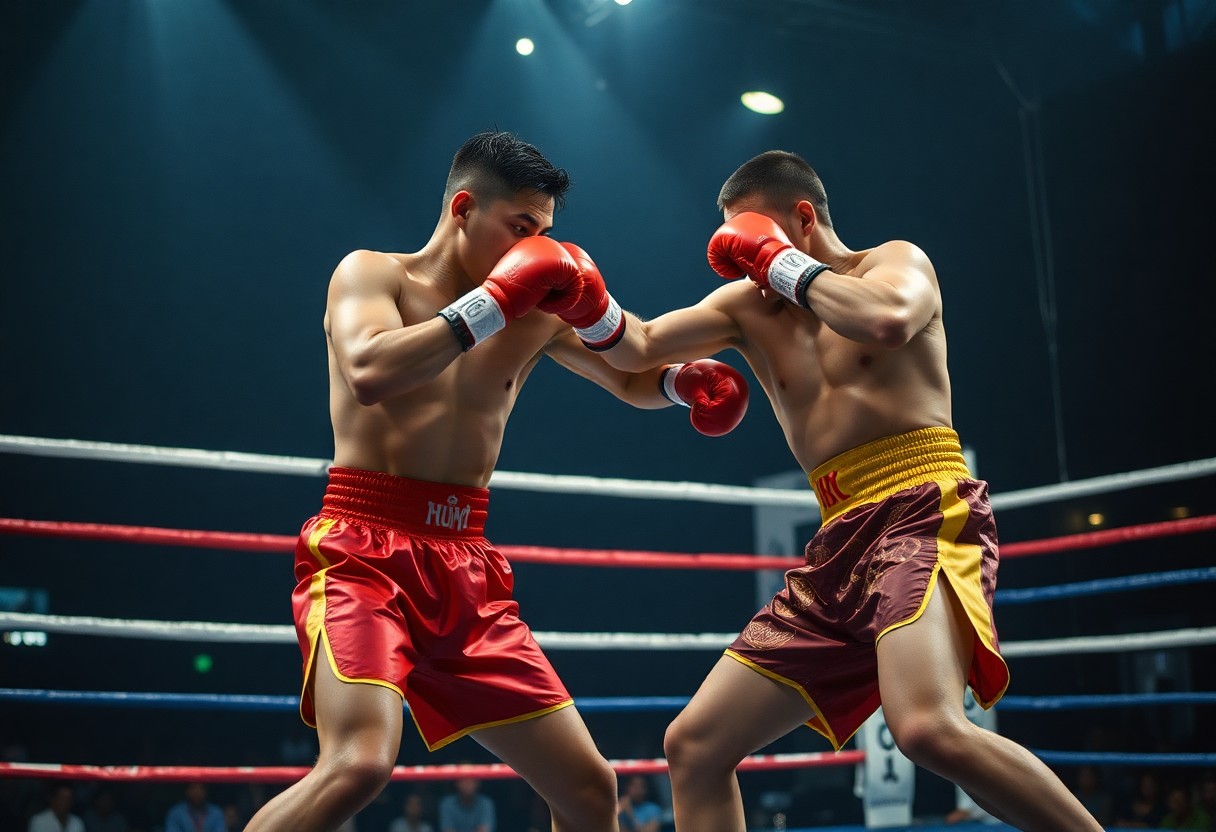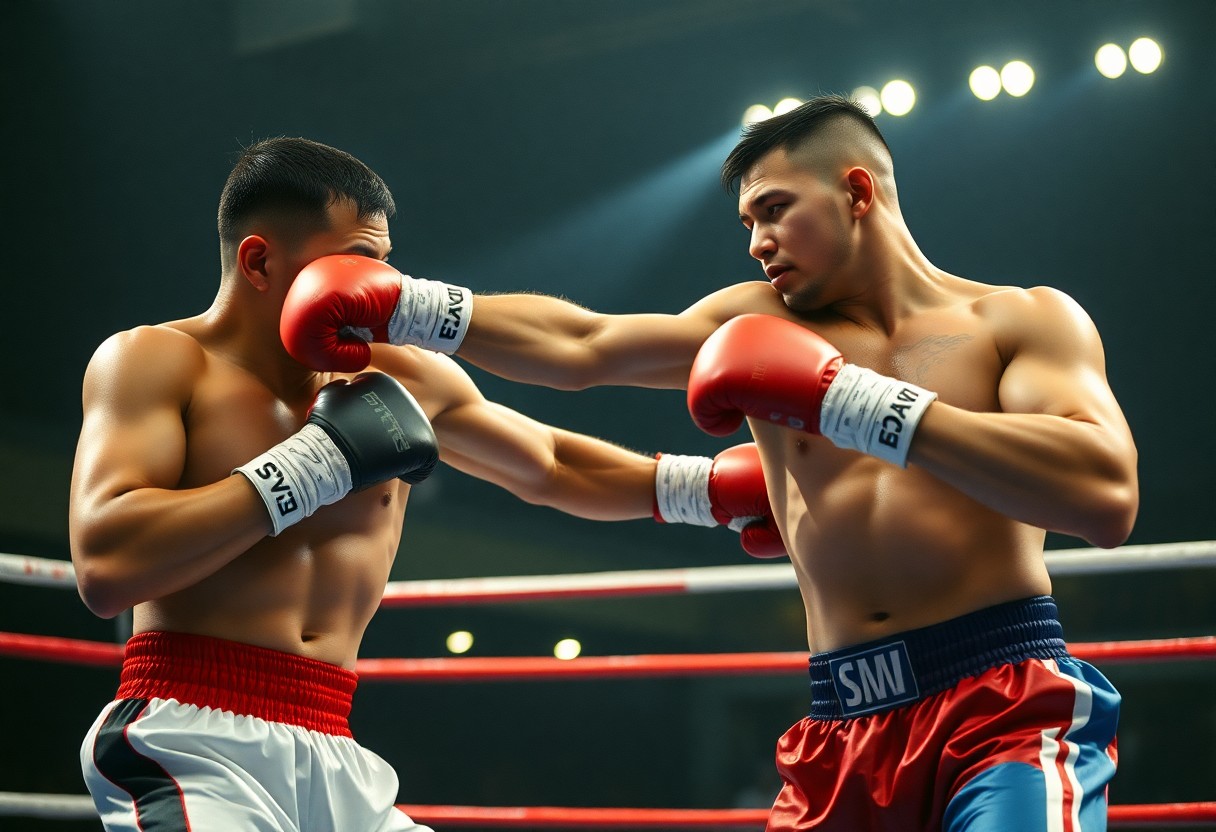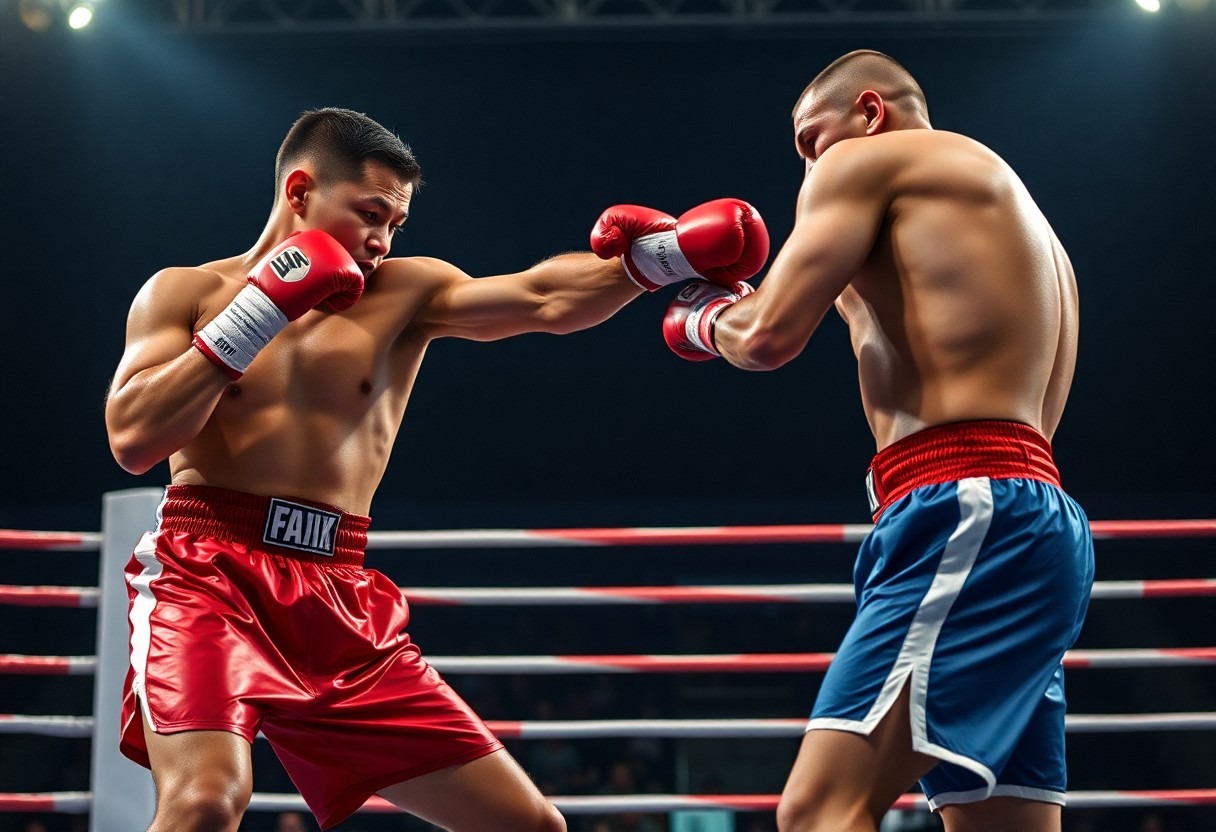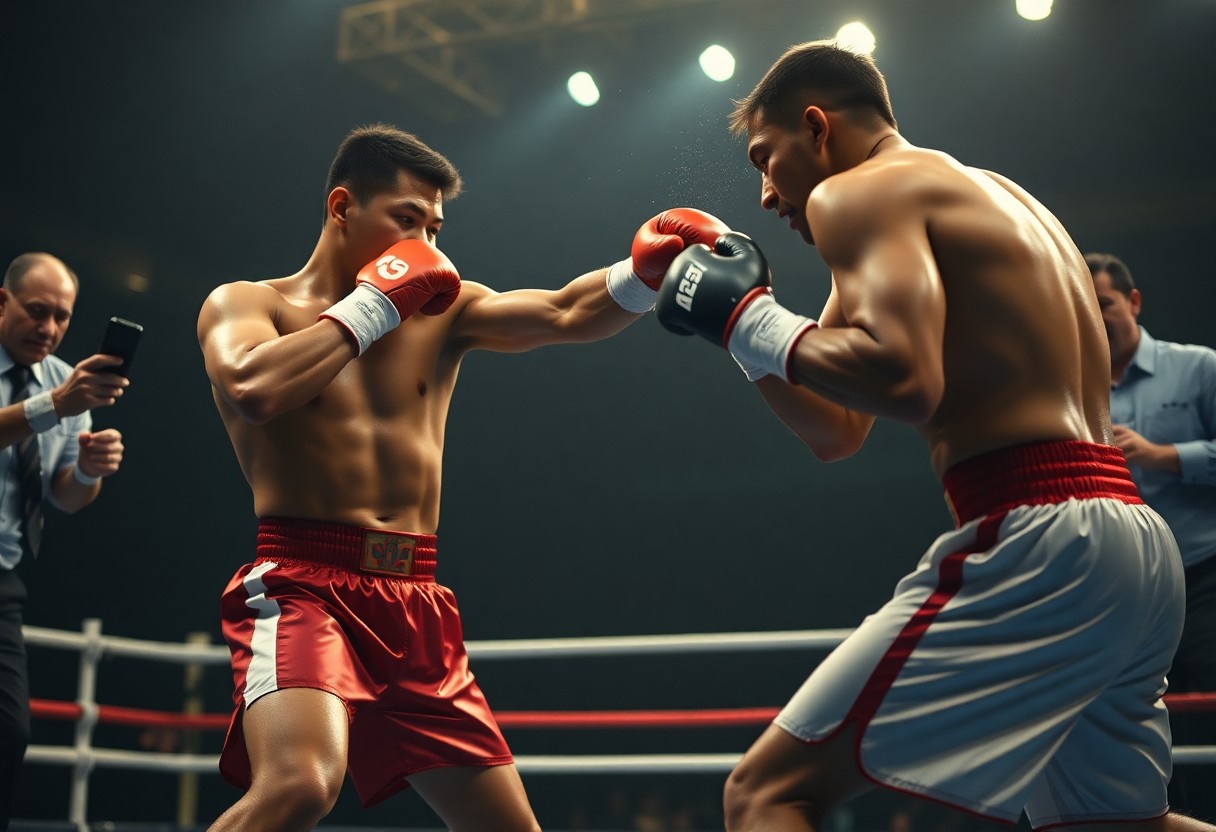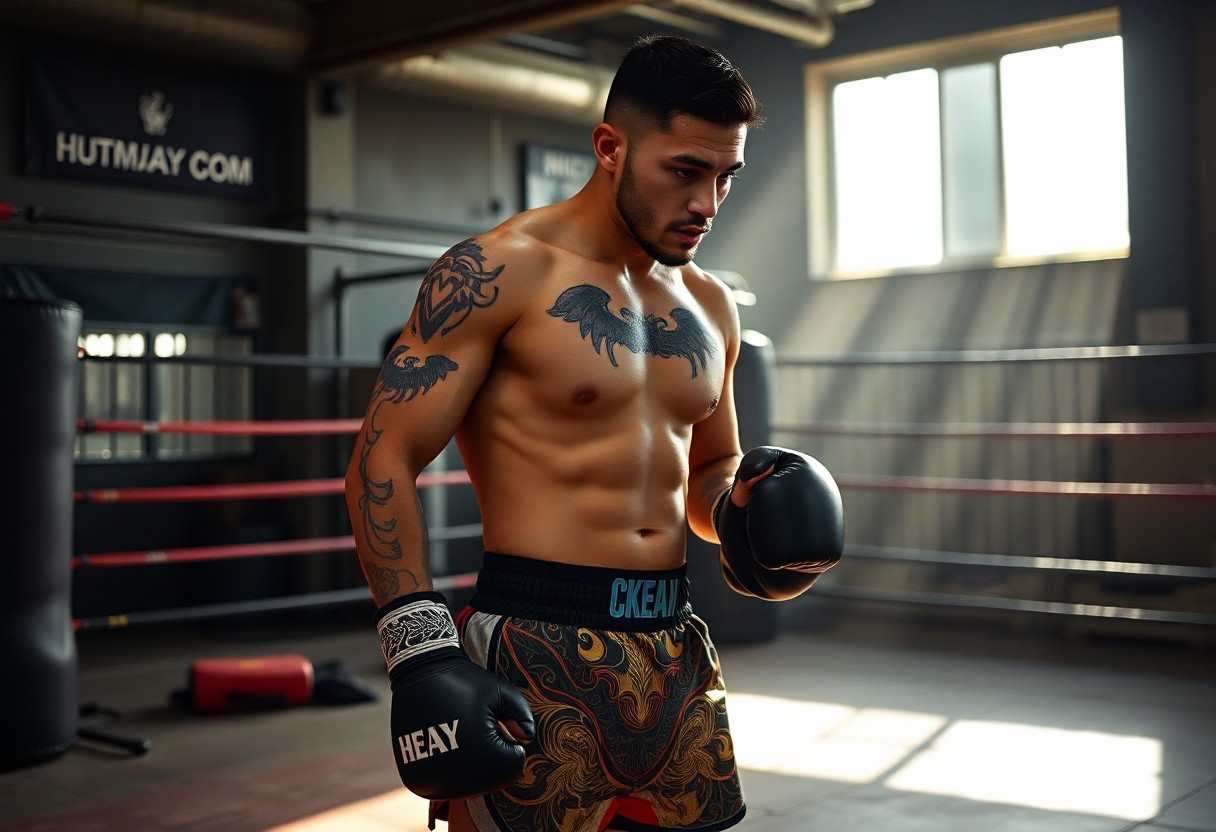
There’s a unique blend of techniques, mental toughness, and cultural heritage that defines a great Muay Thai fighter. The sport, known as the “Art of Eight Limbs,” emphasizes striking with fists, elbows, knees, and shins, showcasing incredible versatility and skill. Beyond physical prowess, the discipline and respect imbued in martial arts play a vital role in shaping a fighter’s journey. Exploring these elements reveals what truly sets exceptional fighters apart in the ring and in their lives.
Types of Muay Thai Fighters
Muay Thai fighters can be categorized into different types, each exhibiting distinct styles and strategies in the ring. Understanding these types helps in grasping their techniques and fighting philosophies. The main types include:
- Traditional Fighters
- Modern Practitioners
- Counterfighters
- Pressure Fighters
- Strategic Fighters
Knowing these classifications can enhance the appreciation of this sport’s complexity.
| Type | Description |
| Traditional Fighters | Focus on technique and heritage. |
| Modern Practitioners | Incorporate various styles and techniques. |
| Counterfighters | Excel in evasion and timing. |
| Pressure Fighters | Overwhelm opponents with aggression. |
| Strategic Fighters | Utilize tactics and mental approaches. |
Traditional Muay Thai Fighters
Traditional Muay Thai fighters uphold the heritage and techniques passed down through generations. Their training emphasizes rituals such as the Wai Khru ceremony, showcasing respect for teachers and the sport’s history. Fighters like Saenchai exemplify this style, combining classical techniques with an artistic flair that reflects centuries of martial tradition.
Modern Muay Thai Practitioners
Modern Muay Thai practitioners integrate various martial arts into their training, resulting in dynamic fighting styles. They often employ advanced techniques, sports science, and analytics to gain an edge. Prominent fighters such as Buakaw Banchamek blend traditional techniques with modern strategies, adapting their styles to face the evolving competition.
These modern practitioners focus on conditioning, biomechanics, and tactical planning, enhancing their effectiveness in the ring. Their exposure to international training camps and diverse fighting styles leads to a continual evolution of their techniques. Additionally, they often engage in cross-training across disciplines like boxing and MMA, creating hybrid fighters that push the boundaries of Muay Thai.
Key Factors for Greatness
Greatness in Muay Thai is an intricate tapestry woven from several strands. The most successful fighters display a combination of technical skill, physical attributes, and uncompromising mental toughness. These elements not only enhance their performance but also determine their longevity in the sport.
- Technical skill
- Physical attributes
- Mental toughness
- Experience
- Dedication
Any fighter seeking to ascend to greatness must cultivate these qualities consistently.
Physical Attributes
Physical attributes such as speed, strength, endurance, and agility are vital for a Muay Thai fighter’s success. Attributes like a powerful kick or lightning-fast reflexes can turn the tide in a fight, allowing a fighter to capitalize on openings or evade attacks. Fighters often enhance these traits through a stringent regimen of training and conditioning, ensuring they can maintain peak performance throughout their bouts.
Mental Toughness
Mental toughness is a defining trait among elite Muay Thai fighters, enabling them to confront adversity with resilience. They cultivate focus, discipline, and a never-give-up attitude that allows them to withstand not only physical pain but also psychological pressures. In high-stakes situations, this mental strength often distinguishes winners from losers.
Building on this, mental toughness encompasses more than just the ability to endure pain. It involves a strategic mindset—the ability to analyze opponents’ movements, anticipate their tactics, and adapt accordingly. One standout example is Saenchai, renowned for his composure under pressure and unparalleled fight IQ. Competing at the highest levels, he exhibits a calm demeanor that allows him to thrive in chaotic environments, reinforcing the value of mental readiness alongside physical prowess.
Essential Tips for Aspiring Fighters
For those yearning to excel in Muay Thai, honing your skills with dedication is vital. Focus on developing your technique, maintaining consistent training, and prioritizing mental resilience. Surround yourself with experienced mentors, watch fights to learn different styles, and stay disciplined with your routine. Setting measurable goals can accelerate your progress in the sport. Thou must embrace the journey of improvement with passion and determination.
Training Techniques
Effective training techniques are fundamental for any aspiring Muay Thai fighter. Integrate various drills such as shadowboxing, pad work, and sparring to enhance your skills. Focus on mastering striking fundamentals and footwork to build a solid foundation. Incorporating strength and conditioning workouts will improve your overall performance, ensuring you remain in peak physical form.
Nutrition and Recovery
Proper nutrition is vital for fighters to maintain energy and enhance performance. Balancing macronutrients and incorporating lean proteins, complex carbohydrates, and healthy fats will fuel your training. Adequate hydration and incorporating rest days into your schedule are equally important for recovery and avoiding injuries. Prioritize sleep to maximize recovery efficiency and elevate overall performance.
Incorporating a tailored nutrition plan can significantly impact an aspiring fighter’s success. Aim to consume whole foods rich in vitamins and minerals, while limiting processed foods that can hinder athletic performance. Supplements such as branched-chain amino acids (BCAAs) can aid recovery post-training. An individualized approach based on personal goals, training intensity, and timing will ensure optimal results along your journey in Muay Thai.
Step-by-Step Path to Mastery
| Phase | Description |
|---|---|
| 1. Fundamentals | Focus on core techniques, including stance, footwork, and basic strikes. |
| 2. Conditioning | Develop physical strength, endurance, and flexibility through targeted exercises. |
| 3. Sparring | Engage in controlled sparring to apply techniques in real-time scenarios. |
| 4. Strategy | Analyze opponents and create effective plans for various match scenarios. |
| 5. Advancement | Integrate advanced techniques and adapt fighting style to enhance performance. |
Building a Strong Foundation
To excel in Muay Thai, establishing a strong foundation is paramount. This phase emphasizes mastering basic techniques such as proper stance and effective striking. Consistent practice of these fundamentals sets the groundwork for more complex skills and ensures fighters maintain solid form and balance under pressure.
Advanced Skills Development
Once the basics are solidified, fighters transition to advanced skills development. This involves refining techniques, learning combinations, and utilizing strategic thinking in matches. Preparing for higher competition levels means integrating advanced strikes and incorporating real-time tactical adjustments during sparring or competitions.
- Incorporate diverse striking techniques such as elbows and knees.
- Practice counter-attacks and defensive maneuvers.
- Enhance fight IQ through film analysis and strategy discussions.
- Engage in conditioning specific to Muay Thai demands.
- Focus on mental preparation for high-stakes scenarios.
| Advanced Skills | Details |
|---|---|
| Techniques | Develop combinations such as jab-cross-knee for effective striking. |
| Strategy | Create plans based on opponent weaknesses and strengths observed during training. |
| Mental Training | Employ visualization techniques for enhanced performance under pressure. |
| Conditioning | Utilize sport-specific drills to enhance stamina and strength relevant to Muay Thai. |
Pros and Cons of Muay Thai Fighting
| Pros | Cons |
|---|---|
| Improves physical fitness and strength | High risk of injuries |
| Boosts mental discipline and focus | Can be intense and demanding |
| Effective self-defense skills | Requires significant time commitment |
| Cultural appreciation and respect | Potential for psychological stress |
| Builds camaraderie within training communities | Access to training may be limited in some areas |
| Enhances flexibility and coordination | Emotionally challenging during competitions |
| Wide range of techniques and strategies | Increased likelihood of burnout |
| Provides competitive opportunities | May not be suitable for everyone |
| Encourages healthy lifestyle choices | Requires proper understanding of techniques to avoid misuse |
| Fosters resilience and grit | Cultural misunderstandings for newcomers |
Advantages of Training in Muay Thai
Training in Muay Thai offers numerous benefits that extend beyond combat proficiency. It significantly enhances physical fitness through rigorous conditioning, developing not just strength but also endurance, flexibility, and coordination. The discipline required fosters mental fortitude and focus, making practitioners more resilient in the face of challenges. Moreover, the unique cultural aspects of Muay Thai instill a deep appreciation for tradition, which can enrich a fighter’s journey both inside and outside the ring.
Potential Challenges Faced
On the other hand, Muay Thai fighters often encounter various challenges throughout their training and competitive endeavors. The physical demands can lead to a high risk of injuries, predominantly from joint strain and impacts. Furthermore, the emotional pressures, especially during competitions, can contribute to stress and anxiety. Balancing the rigorous training schedule with personal and professional commitments may prove to be a significant hurdle for many aspiring fighters.
The risk of injury, including sprains, fractures, or even concussions, is ever-present in Muay Thai training. Fighters must remain vigilant about their technique and conditioning to mitigate these risks. The emotional toll cannot be understated either; many fighters experience intense pressure leading up to matches, which can diminish their mental well-being. Additionally, with the increasing commitment to training, balancing personal relationships and professional responsibilities can become particularly daunting. All these factors require careful navigation to maintain a healthy lifestyle while pursuing excellence in this demanding sport.
Final Words
Conclusively, a truly great Muay Thai fighter embodies a unique blend of discipline, technical skill, and mental fortitude. Mastery of techniques and strategies is vital, but it is the fighter’s ability to adapt, persevere in the face of adversity, and maintain a strong spirit that distinguishes them from the rest. Continuous dedication to self-improvement and respect for the sport and opponents further elevates their greatness. In the end, these qualities ensure their legacy endures well beyond the ring, inspiring future generations of fighters.
FAQ
Q: What are the important attributes of a great Muay Thai fighter?
A: A great Muay Thai fighter possesses a combination of physical attributes such as strength, speed, and endurance, alongside mental characteristics like discipline, focus, and resilience. Technical skills in striking, clinching, and defensive maneuvers are also vital, along with adaptability to different opponents and fighting styles.
Q: How important is training and dedication in becoming a top Muay Thai fighter?
A: Training and dedication are fundamental to achieving success in Muay Thai. Consistent practice, personalized training regimens, and a strong work ethic contribute to skill development and physical conditioning. A dedicated fighter often embraces a lifestyle that includes a proper diet, recovery protocols, and mental preparation to achieve peak performance.
Q: What role does mental toughness play in a Muay Thai fighter’s success?
A: Mental toughness is integral to a Muay Thai fighter’s success. It enables fighters to endure the physical demands of training, stay composed during high-pressure situations, and recover from setbacks or defeats. A strong mindset helps in making strategic decisions during fights and maintaining motivation over time.

